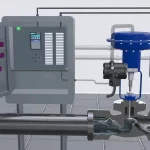Maintaining clean and safe water is a fundamental concern for homeowners and communities alike. In areas without access to municipal sewage services, septic systems play a crucial role in treating household wastewater. Regular septic tank pumping is a vital component of septic system maintenance, and it has a significant impact on water quality. In this article, we will explore the relationship between septic tank pumping and water quality, emphasizing the importance of proper maintenance in safeguarding our water resources and the environment.
The Function of Septic Systems
Before delving into the relationship between septic tank pumping and water quality, let’s briefly understand how septic systems function. A typical septic system consists of three primary components:
- Septic Tank: This watertight underground container receives and temporarily holds household wastewater. Inside the tank, solids settle to the bottom, forming a layer of sludge, while lighter materials like grease float to the top, creating a scum layer.
- Drainfield (Leach Field): After leaving the septic tank, the liquid effluent flows into the drainfield, which consists of a network of perforated pipes or chambers buried in soil. The effluent undergoes further treatment as it percolates through the soil.
- Soil: Soil in the drainfield acts as a natural filter and treatment medium, removing impurities and pathogens from the effluent before it re-enters the groundwater.
The Importance of Septic Tank Pumping
Over time, solid waste accumulates in the septic tank, reducing its capacity and potentially causing issues such as clogs and backups. Proper maintenance, including regular septic tank pumping, is essential for several reasons:
- Prevents Clogs and Backups: Pumping removes accumulated sludge and scum, reducing the risk of clogs and backups in plumbing fixtures.
- Restores Tank Capacity: Pumping restores the effective capacity of the septic tank, allowing it to properly separate solids and treat wastewater.
- Ensures Efficient Treatment: A well-maintained septic tank functions efficiently, ensuring that the effluent entering the drainfield is adequately treated.
- Prevents System Failures: Neglecting septic tank pumping can lead to system failures, costly repairs, or even the need for a complete system replacement.
- Protects Water Quality: Proper maintenance helps prevent untreated sewage from contaminating groundwater and surface water, preserving water quality.
The Science of Septic Tank Pumping
To understand the relationship between septic tank pumping and water quality, let’s explore the science behind the pumping process:
Gravity Separation:
-
- The septic tank relies on the principle of gravity separation. Heavier solids, such as sludge, settle to the bottom of the tank, forming the sludge layer. Lighter solids, like scum, float to the top, creating the scum layer.
Bacterial Action:
-
- Bacteria play a crucial role in the septic tank’s operation. Anaerobic bacteria thrive in the oxygen-depleted environment of the tank and work to break down organic matter present in the effluent.
Effluent Clarification:
-
- As wastewater enters the septic tank, it undergoes a process of clarification. Particles in the effluent settle out due to gravitational forces, helping to clarify the liquid portion.
The Septic Tank Pumping Process
Professionals play a significant role in the septic tank pumping process. Here are the essential steps involved:
Inspection:
-
- Before pumping begins, professionals inspect the septic tank and access points to assess their condition. This inspection helps identify any issues or areas of concern.
Pumping:
-
- Specialized vacuum trucks are used to remove the contents of the septic tank. The process typically starts by removing the scum layer, followed by the sludge layer and clarified effluent.
Waste Removal:
-
- The collected waste is transported to licensed treatment facilities, where it undergoes proper processing and disposal. This step is crucial for responsible waste management.
Component Inspection:
-
- Professionals often inspect the inlet and outlet baffles within the septic tank. Damaged or missing baffles can affect the tank’s performance and are addressed as needed.
Effluent Assessment:
-
- During pumping, professionals may evaluate the quality of the effluent. It should appear clear and free of debris. Any issues with the effluent may be indicative of problems within the tank.
Tank Cleaning (Optional):
-
- In certain situations, professionals may clean the interior of the septic tank to remove residual solids or buildup. This step is not always necessary but can be beneficial.
Protecting Water Quality Through Septic Tank Pumping
Now that we’ve covered the science and process of septic tank pumping, let’s discuss how this maintenance practice directly impacts water quality:
Prevents Contamination:
-
- Regular septic tank pumping prevents the overloading of solids and sludge in the tank. Without proper maintenance, untreated sewage can leak into the groundwater, contaminating this vital resource.
Protects Groundwater:
-
- Groundwater is a primary source of drinking water for many communities. Proper septic tank pumping helps safeguard groundwater quality by preventing contamination.
Reduces Nutrient Pollution:
-
- Inadequately treated wastewater can introduce excess nutrients, such as nitrogen and phosphorus, into the environment. These nutrients can lead to water quality issues, including algal blooms and oxygen depletion.
Preserves Surface Water:
-
- Septic systems located near lakes, rivers, or other surface water bodies can impact their water quality. Pumping ensures that septic systems do not contribute to pollution of surface water.
Supports Ecosystem Health:
-
- Clean water is essential for the health of aquatic ecosystems. Septic tank pumping plays a role in protecting the habitats and species that depend on healthy waterways.
Conclusion
The relationship between septic tank pumping and water quality is undeniably significant. Proper maintenance of septic systems, including regular pumping, is essential for preventing contamination of groundwater and surface water. By understanding the science behind septic tank pumping and its role in preserving water quality, homeowners can take proactive steps to protect this invaluable resource.
Responsible septic system care not only benefits individual households but also contributes to the overall health of our communities and ecosystems. Regular septic tank pumping is a key component of this care, ensuring that our water remains clean and safe for generations to come.













